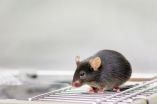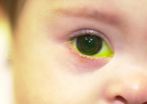(Press-News.org) Patients are more likely to raise a health problem with a doctor they've seen over time and have built-up a relationship with, new research has revealed. The insight comes as an increasing number of patients struggle to see the same GP.
Researchers from the University of Bristol will share their findings with health practitioners and researchers at the South West Society for Academic Primary Care (SW SAPC) meeting today [07 March].
Seeing the same GP is thought to be important in ensuring quality of patient care, as the doctor will have better knowledge of the patient's history, medications, and health-related behaviours and attitudes.
However, a quarter of patients find it difficult to see the doctor of their choice most of the time due to a combination of factors. Namely, a reduction in doctors' working hours, an increase in part-time working, a focus on access and rapid appointments in the 2004 GP contract, and organisational changes in out-of-hours care.
Previous studies have quantified the numbers and types of problems that are raised in GP consultations, but there is little evidence about the effect of increasing depth of patient-doctor relationships on the content of these interactions.
To shed light on this, researchers collected data from 22 practices in the Bristol area, recording consultations between 190 patients and 30 GPs.
Researchers then looked at whether consultation length and the number of problems and issues raised were affected by patient-doctor continuity.
Analysis showed that almost a third of patients had a 'deep' relationship with their GP, which in turn encouraged them to raise 0.5 more problems (a topic requiring a GP to make a decision or diagnosis) and 0.9 more issues (the number of topics raised within each problem, such as symptoms) during each consultation.
This may mean many more problems and issues are addressed over the course of several visits.
Dr Matthew Ridd, from Bristol University's School of Social and Community Medicine, was part of the research team and said: "Participants mostly reported a strong relationship with their GP, built-up over time. There was evidence that patients raised more problems and issues with GPs that they felt they had a deep relationship with.
"This could be because patients feel more comfortable raising additional issues with a GP they feel they know well, or because more issues can be addressed within the time available as the GP knows the patient and their medical history.
"This research study is the first of its kind to show how seeing the same doctor can positively affect consultations."
The study also found that the type of problem or issue raised was not related to the depth of the relationship between the patient and their doctor, except that behavioural problems or issues were less likely to be raised when a deep relationship existed.
INFORMATION: END
How seeing the same GP helps your health
2014-03-07
ELSE PRESS RELEASES FROM THIS DATE:
Primary care needs to 'wake-up' to links between domestic abuse and safeguarding children
2014-03-07
Researchers looking at how healthcare professionals deal with domestic violence cases have identified that GPs, practice nurses and practice managers are uncertain about how to respond to the exposure of children to domestic violence.
With at least 1.2 million women and 784,000 men experiencing domestic violence and abuse in England and Wales each year, the negative effect on families and children can be far-reaching. Childhood exposure to domestic violence and abuse can result in long-term behavioural, mental health and education problems.
However, new research has ...
Researchers map European climate change
2014-03-07
The majority of Europe will experience higher warming than the global average if surface temperatures rise to 2 °C above pre-industrial levels, according to a new study published today.
Under such a scenario, temperatures greater than the 2 °C global average will be experienced in Northern and Eastern Europe in winter and Southern Europe in summer; however, North-Western Europe—specifically the UK—will experience a lower relative warming.
The study, which has been published today, 7 March, in IOP Publishing's journal Environmental Research Letters, also shows that in ...
Drug protects mice against malaria brain damage, raises levels of BDNF in humans
2014-03-07
Cerebral malaria is a serious complication of infection with the malaria parasite, affecting approximately one in a thousand children in areas where malaria is common. Many of the patients die, and among those who survive, about a third have lasting cognitive and neurological disabilities, including epilepsy and learning disorders. A study published on March 6th in PLOS Pathogens shows that a known drug can prevent brain damage in a cerebral malaria mouse model and eliminate subsequent neurological deficits.
Infection with the malaria parasite elicits a strong immune ...
Simple urine test detects common causes of kidney dysfunction after transplantation
2014-03-07
Washington, DC (March 6, 2014) — A new noninvasive urine test can distinguish among different causes of acute kidney dysfunction after transplantation. The test, which is described in a study appearing in an upcoming issue of the Journal of the American Society of Nephrology (JASN), may allow patients to avoid invasive kidney biopsies when their transplanted organ is not functioning properly.
When creatinine levels are elevated in the blood of a kidney transplant recipient, it is an indication that the transplanted kidney is not functioning well. There are several reasons ...
Birds display lateralization bias when selecting flight paths
2014-03-07
Flocks of birds manage to navigate through difficult environments by individuals having predispositions to favour the left- or right-hand side, according to research published in PLOS Computational Biology this week.
Scientists at The University of Queensland's Queensland Brain Institute (QBI) and the Australian Research Council Centre of Excellence in Vision Science found that budgerigars display individual bias to fly to the left or right. This allows flocks to quickly navigate past obstacles by being able to split and not slow down due to crowding.
Dr Partha Bhagavatula, ...
Fighting for survival in the gut: Unravelling the hidden variation of bacteria
2014-03-07
This news release is available in Portuguese.
Our intestines harbour an astronomical number of bacteria, around 100 times the number of cells in our body, known as the gut microbiota. These bacteria belong to thousands of species that co-exist, interact with each other and are key to our health. While it is clear that species imbalances may result in disease, it is unclear at what pace does each species in the gut evolves, a process that contributes to the chance of a particular innocuous species becoming harmful to the host.
In the latest issue of the scientific ...
Contacts better than permanent lenses for babies after cataract surgery
2014-03-06
For adults and children who undergo cataract surgery, implantation of an artificial lens is the standard of care. But a clinical trial suggests that for most infants, surgery followed by the use of contact lenses for several years—and an eventual lens implant—may be the better solution. The trial was funded in part by the National Eye Institute (NEI), a component of the National Institutes of Health.
A cataract is a clouding of the eye's lens, and can be removed through a safe, quick surgical procedure. After cataract removal, most adults and children receive a permanent ...
NASA's Hubble Telescope witnesses asteroid's mysterious disintegration
2014-03-06
NASA's Hubble Space Telescope has recorded the never-before-seen break-up of an asteroid into as many as 10 smaller pieces.
Fragile comets, comprised of ice and dust, have been seen falling apart as they near the sun, but nothing like this has ever before been observed in the asteroid belt.
"This is a rock, and seeing it fall apart before our eyes is pretty amazing," said David Jewitt of the University of California at Los Angeles, who led the astronomical forensics investigation.
The crumbling asteroid, designated P/2013 R3, was first noticed as an unusual, fuzzy-looking ...
Nearby star's icy debris suggests 'shepherd' planet
2014-03-06
VIDEO:
NASA Goddard's Aki Roberge explains how observations with the Atacama Large Millimeter/submillimeter Array in Chile tell us about poison gas, comet swarms and a hypothetical planet around Beta Pictoris....
Click here for more information.
An international team of astronomers exploring the disk of gas and dust around a nearby star have uncovered a compact cloud of poisonous gas formed by ongoing rapid-fire collisions among a swarm of icy, comet-like bodies. The researchers ...
Study provides new information about the sea turtle 'lost years'
2014-03-06
MIAMI – A new study satellite tracked 17 young loggerhead turtles in the Atlantic Ocean to better understand sea turtle nursery grounds and early habitat use during the 'lost years.' The study, conducted by a collaborative research team, including scientists from the University of Miami (UM) Rosenstiel School of Marine and Atmospheric Science, was the first long-term satellite tracking study of young turtles at sea.
"This is the first time we were able to show the maiden voyage of young turtles after they left the beach," said Rosenstiel School scientist Jiangang Luo ...




